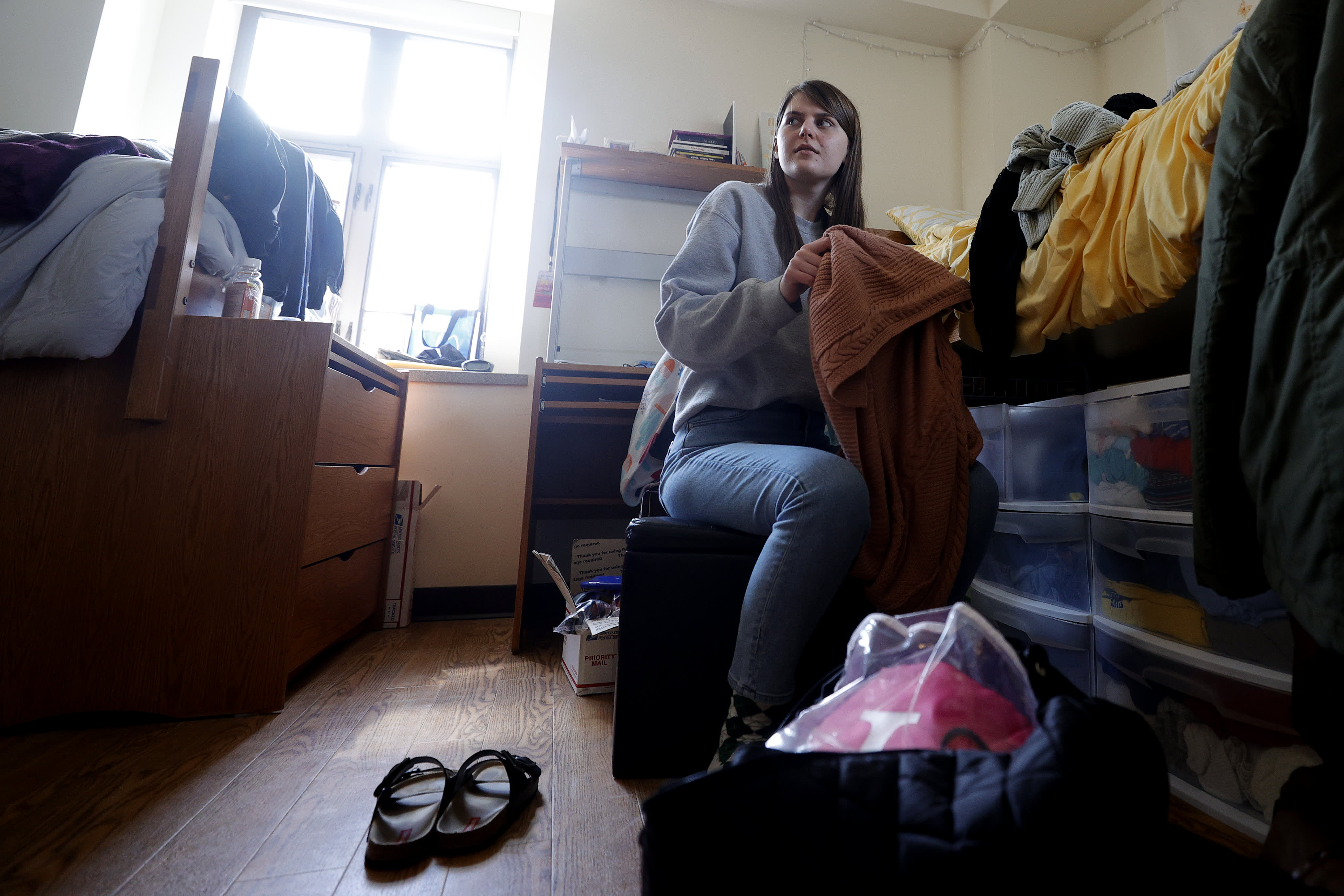Even before the pandemic, Eden Schiano, 19, had concerns about her first year of college.
Schiano suffered from anorexia in high school and was uncertain how the fall of 2020 would go as a freshman at Virginia Commonwealth University.
Being mostly isolated in her dorm quickly took a toll. “I was in my dorm room, doing classes online and I started losing weight,” she said. By October, Schiano decided to withdraw.
Whether for mental health conditions or concerns about Covid, the number of students taking time off skyrocketed last year.
But withdrawing mid-semester could come at a steep financial cost.
More from Personal Finance:
College plans rebound although cost is a top concern
Hundreds of colleges say Covid vaccines will be mandatory
Colleges and unvaccinated students are set for a standoff
While a number of colleges and universities have said they will offer refunds of fees and room and board if campuses must close again, the reimbursement policies vary from school to school — and nearly all of them have drawn the line at tuition.
Depending on when a student withdraws during a semester, a school’s refund policy may reimburse a significant amount (specifically if it’s within the first month or so of the semester, although it varies by school.)
However, refunds are typically offered on a sliding scale and most schools won’t give any money back at all after the fifth week of classes.
There is another way: Many schools also offer third-party tuition protection or it can also be purchased directly through a provider such as GradGuard or A.W.G. Dewar.
Tuition insurance, also known as tuition refund insurance, generally covers families for medical or psychological reasons, with a few obvious exclusions, such as flunking out or being kicked out for disciplinary causes (although the extent of coverage varies from plan to plan.)
GradGuard’s tuition insurance starts at $39.95 for $2,500 of coverage per term, although most families buy $10,000 of coverage per term, which starts at $106, to protect their out of pocket costs not including loans and grants. That covers tuition as well as financial losses from room and board and academic fees.
Schiano said her tuition insurance policy helped alleviate the pressure to stay in school despite her worsening condition.
“It took away the shame and guilt factor of having to leave and feeling like this was going to be such a burden for my parents,” she said.
Even though nearly two-thirds of parents, or 63%, said their child’s post-high school plans have returned to what they were before the coronavirus crisis, cost remains a top concern.
Tuition and fees plus room and board for a four-year private college averaged $50,770 in the 2020-21 school year; at four-year, in-state public colleges, it was $22,180, according to the College Board, which tracks trends in college pricing and student aid.
When adding in other expenses, the total tab can be more than $70,000 a year for undergraduates at some private colleges or even out-of-state students attending four-year public schools.
At the same time, cases of Covid are on the rise again, and the possibility of more campus closures has sparked renewed interest in college refund policies and tuition insurance.
Trisha Jung recently bought a GradGuard policy for her stepdaughter, who will be a junior at Appalachian State University in Boone, North Carolina. “It just seemed like a good idea, based on the world these days.”
Jung, who is from Nashville, Tennessee, said it was not something she would have considered before the pandemic. “Life is very full of unexpected events,” she said.
“Since the start of Covid, we have seen a dramatic interest from schools, students and families,” said Natalie Tarangioli, director of marketing at GradGuard, which now works with more than 400 colleges.
Before the pandemic, health conditions such as mononucleosis and pneumonia were among the top medical conditions that stood in the way of graduating on time, or at all.
“The real concern last year was that students would get Covid; this year, there’s added concern about mental health and wellness,” Tarangioli said.
Already, “we’ve more than doubled the number of tuition insurance policies sold for this fall compared to last,” she added.
